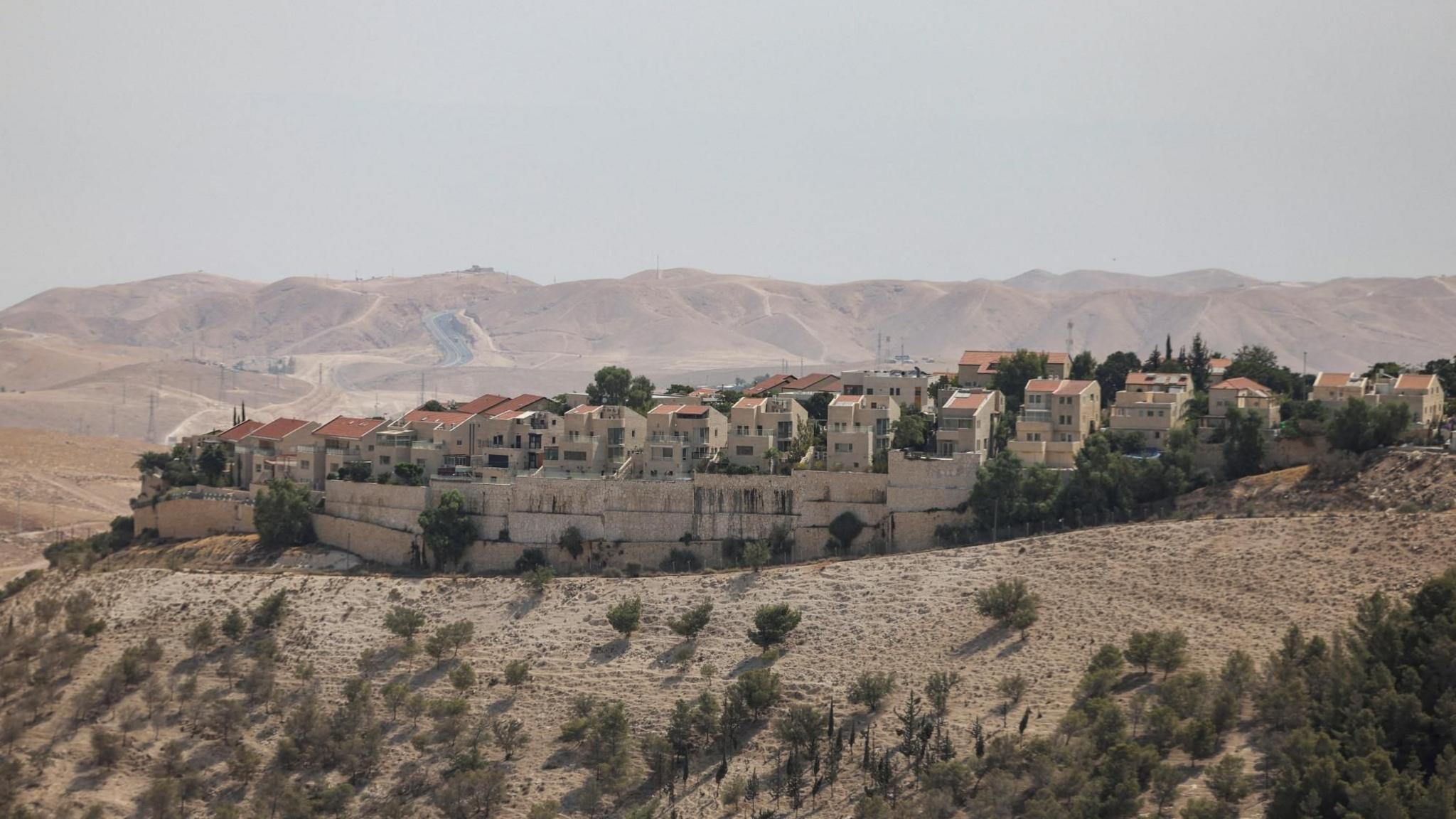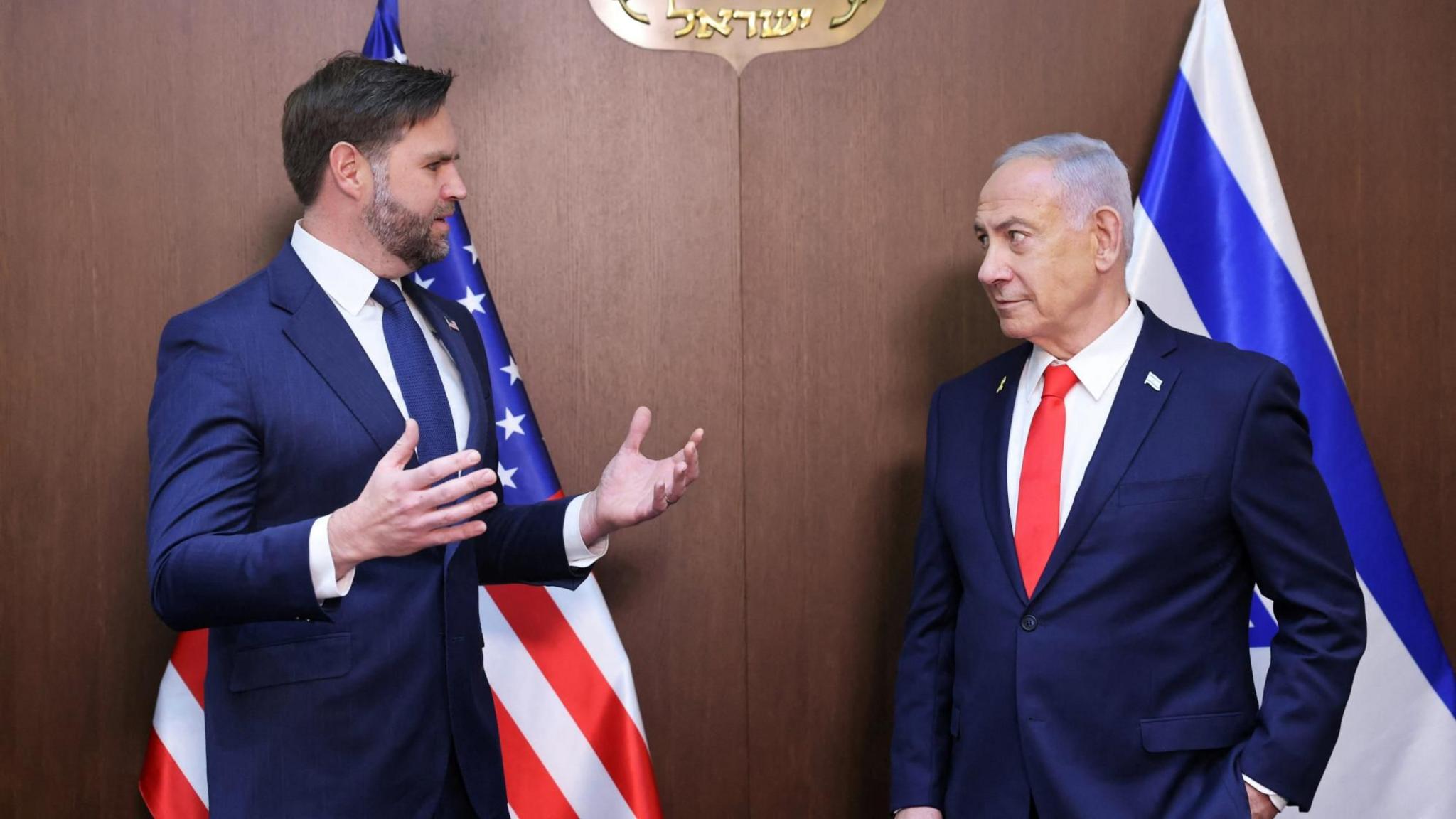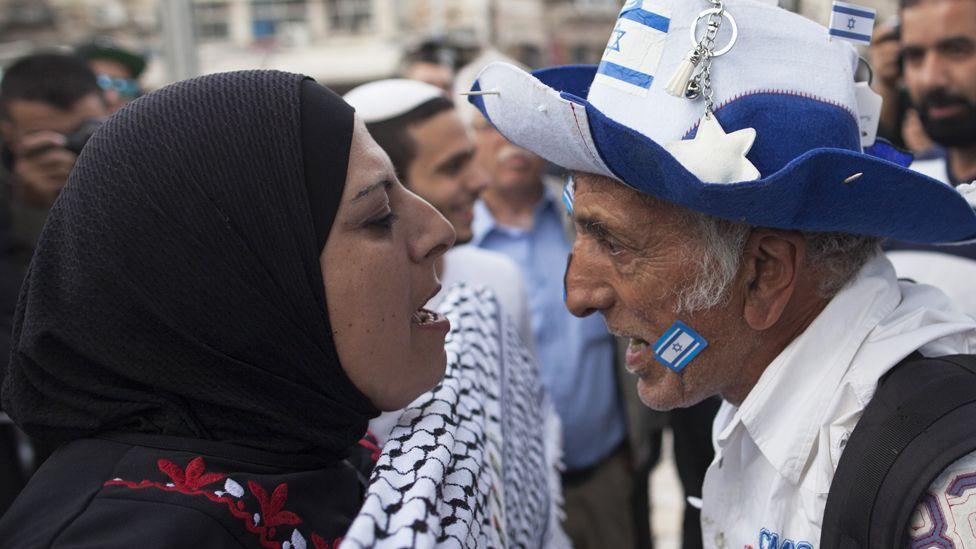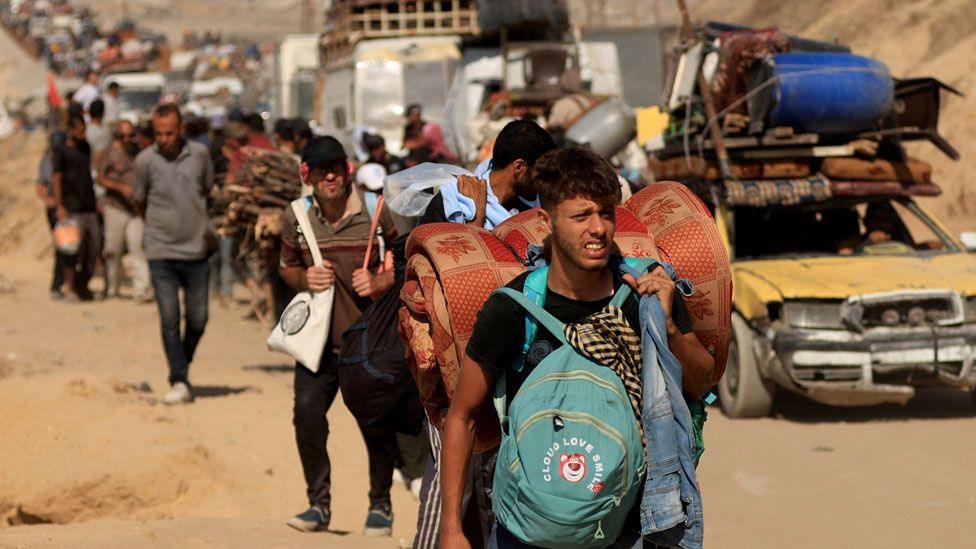Vance and Rubio criticise Israeli parliament's vote on West Bank annexation
Rubio: An Israeli annexation of West Bank would threaten peace deal
- Published
US Vice-President JD Vance and Secretary of State Marco Rubio have criticised a move by Israel's parliament towards annexation of the occupied West Bank.
On Wednesday, far-right politicians in the Knesset took the symbolic step of giving preliminary approval to a bill applying Israeli law in the territory, which the Palestinians claim as part of a hoped-for independent state.
At the end of a trip to Israel, Vance branded it a "very stupid political stunt". Rubio warned before flying to Israel that annexation would threaten President Donald Trump's plan to end the conflict in Gaza.
Israel's prime minister called the move a "deliberate political provocation by the opposition to sow discord".
A statement from Benjamin Netanyahu's office stressed that his right-wing Likud party and its ultra-Orthodox coalition partners did not vote for the bill, "except for one disgruntled Likud member who was recently fired from the chairmanship of a Knesset committee".
"Without Likud support these bills are unlikely to go anywhere," it added.
The prime minister's office put out the statement in English after Vance was asked about the vote by reporters before he boarded his plane at Tel Aviv's Ben Gurion airport.
"If it was a political stunt, it was a very stupid political stunt and I personally take some insult," he said. "The West Bank is not going to be annexed by Israel. The policy of the Trump administration is that the West Bank will not be annexed by Israel."
"That will continue to be our policy. If people want to take symbolic votes, they can do that. But we certainly weren't happy about it."
Time magazine also published an interview with President Trump in which he insisted that annexation would not happen "because I gave my word to the Arab countries."
"Israel would lose all of its support from the United States if that happened," he added.

Israel has built about 160 settlements across the occupied West Bank
Israel has built about 160 settlements housing 700,000 Jews since it occupied the West Bank and East Jerusalem during the 1967 Middle East war. An estimated 3.3 million Palestinians live alongside them.
The settlements are illegal under international law - a position supported by an advisory opinion of the International Court of Justice last year.
Prime Minister Netanyahu has previously spoken in support of annexing West Bank land but has not advanced this due to the risk of alienating the US - Israel's most important ally - and Arab countries which have built relations with Israel after decades of enmity.
Ultra-nationalists in Netanyahu's governing coalition have repeatedly called for Israel to annex the West Bank outright, though the bill was put forward by MPs outside the government.
The bill passed in a 25-24 vote. It is unclear whether it has support to win a majority in the 120-seat Knesset (parliament), and there are ways the prime minister can delay or defeat it.
The bill will now be discussed by the Knesset Foreign Affairs and Defence Committee and would have to pass three more readings to become law.
The Palestinian foreign ministry condemned the Knesset's move, saying Israel would have no sovereignty over Palestinian land.

Before leaving for Israel on Wednesday night, Rubio said annexation would be "counterproductive" for Trump's Gaza peace plan - reiterating US opposition to annexation.
"I think the president's made clear that's not something we'd be supportive of right now. And we think it's even threatening to the peace deal," he said.
His visit on Thursday comes hot on the heels of trips by Vance and two US special envoys, Steve Witkoff and Jared Kushner, as the Trump administration attempts to push for the start of talks on the second critical phase of his 20-point Gaza peace plan.
The first phase - which includes a ceasefire, the partial withdrawal of Israeli forces and an influx of aid - came into effect earlier this month.
Both Israel and Hamas have accused each other of breaching the agreement over deadly incidents, but it has so far held.
Rubio voiced similar optimism to that of Vance for preserving the ceasefire.
"Every day there'll be threats to it, but I actually think we're ahead of schedule in terms of bringing it together, and the fact that we made it through this weekend is a good sign," he said.
The second phase of the peace plan would involve setting up an interim government in Gaza, deploying an international stabilisation force, the withdrawal of Israeli troops, and the disarmament of Hamas.
The war in Gaza began with the Hamas-led attack on southern Israel on 7 October 2023, in which around 1,200 people were killed and 251 taken hostage.
In the ensuing conflict, more than 68,000 Palestinians have been killed in Gaza, according to the territory's Hamas-run health ministry, whose figures are seen by the UN as reliable.
Additional reporting by Chris Graham
- Published14 October

- Published22 September
